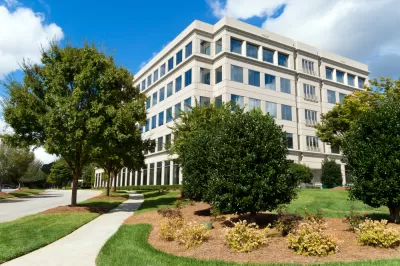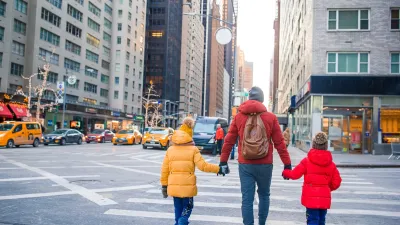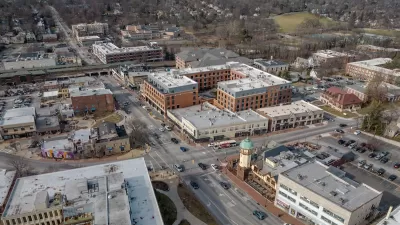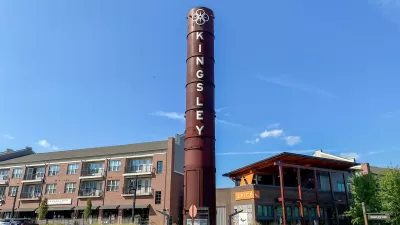When corporations move out of the suburbs, they leaving behind largely unprofitable corporate campuses. Loss of property value and tax revenue follow in the communities they left.

Past decades have seen a trend of major corporations moving their headquarters away from suburbs and small cities and toward larger cities or, in some cases, remote work environments. "Suburban business parks are as outdated and obsolete as fax machines," writes David Bernstein in an article tracking 'big empties,' the "sprawling, once-trendy corporate campuses left behind in the suburbs as companies increasingly relocate to urban centers."
Developing technologies enabled companies like Kmart, McDonald's, Motorola Solutions, and Kraft Heinz to leave their corporate campuses, says Bernstein. It's no longer necessary for all employees to work from a central office. The emptiness of once-booming business centers has consequences for the communities in which they stand. Bernstein traces examples of unoccupied corporate campuses that, without tenants, lose property value and tax revenue leaving local government to pick up the slack.
The vacant campuses now face one of two futures: continued vacancy or demolition. In the case of an AT&T campus that has lost more than $6 million in value over the past five years, plans are being developed to build a 'metroburb,' complete with retail, restaurants, office space, and housing in its place.
FULL STORY: The Big Empty: How Corporate Headquarters Have Abandoned America’s Suburbs

Alabama: Trump Terminates Settlements for Black Communities Harmed By Raw Sewage
Trump deemed the landmark civil rights agreement “illegal DEI and environmental justice policy.”

Study: Maui’s Plan to Convert Vacation Rentals to Long-Term Housing Could Cause Nearly $1 Billion Economic Loss
The plan would reduce visitor accommodation by 25% resulting in 1,900 jobs lost.

Planetizen Federal Action Tracker
A weekly monitor of how Trump’s orders and actions are impacting planners and planning in America.

Waymo Gets Permission to Map SF’s Market Street
If allowed to operate on the traffic-restricted street, Waymo’s autonomous taxis would have a leg up over ride-hailing competitors — and counter the city’s efforts to grow bike and pedestrian on the thoroughfare.

Parklet Symposium Highlights the Success of Shared Spaces
Parklets got a boost during the Covid-19 pandemic, when the concept was translated to outdoor dining programs that offered restaurants a lifeline during the shutdown.

Federal Homelessness Agency Places Entire Staff on Leave
The U.S. Interagency Council on Homelessness is the only federal agency dedicated to preventing and ending homelessness.
Urban Design for Planners 1: Software Tools
This six-course series explores essential urban design concepts using open source software and equips planners with the tools they need to participate fully in the urban design process.
Planning for Universal Design
Learn the tools for implementing Universal Design in planning regulations.
Caltrans
Smith Gee Studio
Institute for Housing and Urban Development Studies (IHS)
City of Grandview
Harvard GSD Executive Education
Toledo-Lucas County Plan Commissions
Salt Lake City
NYU Wagner Graduate School of Public Service





























